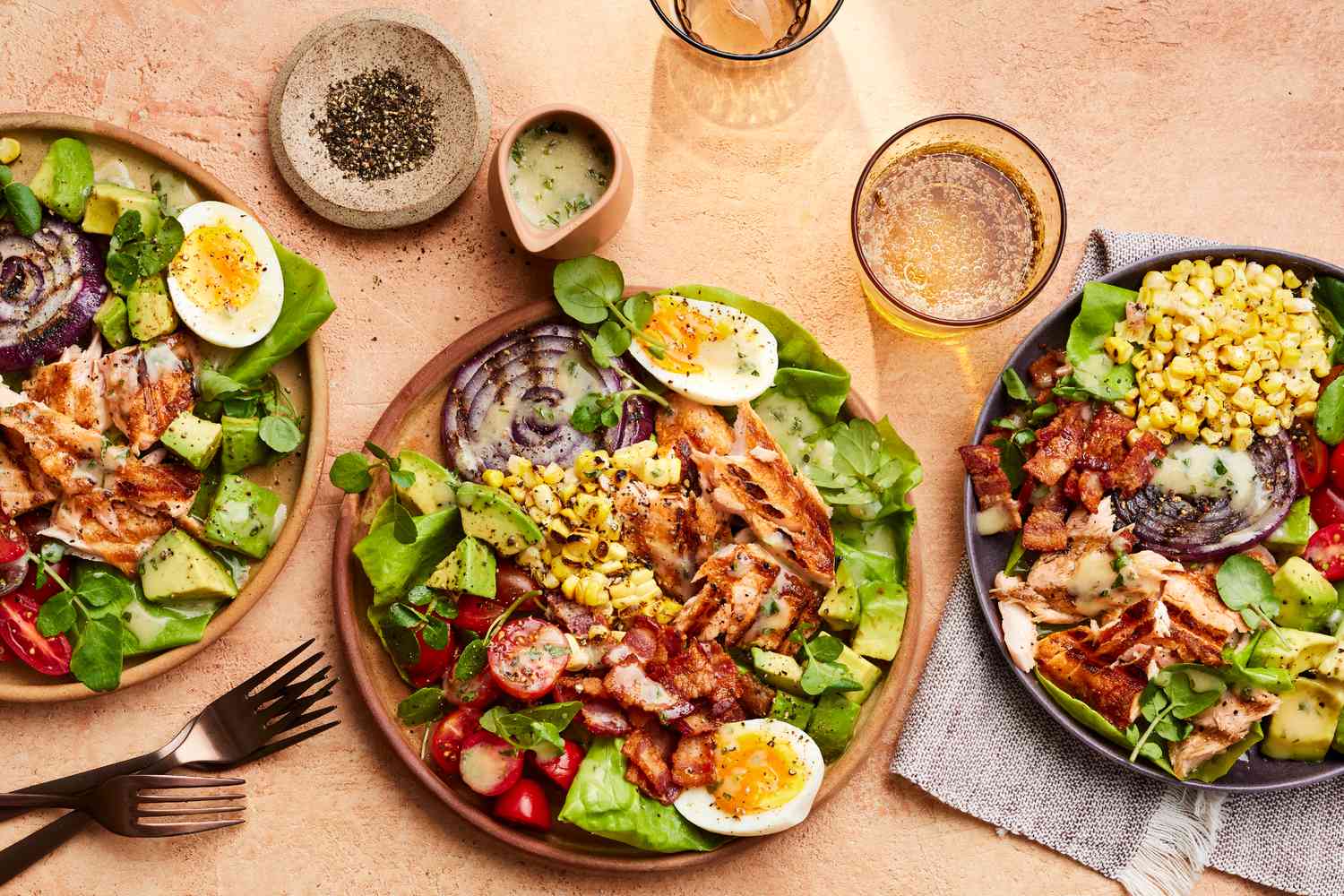Cobb salad is a timeless American favorite. It’s not just tasty; it’s also packed with nutrients and can be tweaked to fit all kinds of diets. This makes it perfect for seniors looking to keep their meals interesting and healthy as they age.
For those living in assisted communities, adjusting what they eat is key to staying vibrant and full of energy. Let’s dive into how older adults can mix up the classic Cobb salad recipe to match their specific health needs while keeping every bite bursting with flavor.
Optimizing Protein Intake
Protein plays a big role in keeping muscles strong and the immune system humming, especially for seniors. A classic Cobb salad usually comes with chicken and bacon. But there are clever ways to pump up its protein while making it even better for older adults.
For those watching their cholesterol, try swapping out bacon for grilled salmon or tossing in some walnuts—both great sources of omega-3s. Adding hard-boiled eggs or a dash of quinoa can also boost the protein level nicely, helping seniors hit their daily goals without missing out on flavor.
Enhancing Calcium Sources
Keeping bones strong is a big deal for the elderly, so calcium can’t be skipped in their meals. To enhance the calcium content in Cobb salad, seniors can add some low-fat feta or goat cheese. These choices bring creaminess and flavor while helping meet those crucial calcium needs.
For anyone lactose intolerant, tossing in some tofu set with calcium or sprinkling sesame seeds on top is a smart swap. Such tweaks aid bone health and fight against osteoporosis—a common issue among older folks.
Increasing Fiber for Digestive Health
Fiber is key for good digestion, but it’s often missing from the diets of many seniors. To pack more fiber into a Cobb salad, swapping out iceberg lettuce for leafier greens like spinach or kale does the trick.
Throwing in extras like sliced avocado, chickpeas, or chopped bell peppers not only boosts the taste but also aids with digestion and keeps blood sugar levels steady. These tweaks make sure that besides being tasty and filling, the salad supports a healthy digestive system, too.
Adjusting Fat Content for Heart Health
Watching fat intake is key for seniors, especially those looking out for their heart health. The usual dressings on Cobb salads are often loaded with saturated fats—not great in large amounts.
For a more heart-friendly twist, opting for olive oil and vinegar or yogurt-based dressings can be smarter choices. These add healthier fats and a zesty taste to the salad. Also, swapping bacon for grilled chicken or turkey cuts down on fat without losing the satisfying richness of the meal—keeping hearts happier along the way.
Conclusion
With a few easy tweaks, Cobb salad can be customized to fit the unique nutritional needs of seniors. This turns it into a flexible and nutritious meal choice. Each ingredient is picked for its dual role in boosting both taste and health—matching what older adults need from their diet perfectly.

Leave a Reply